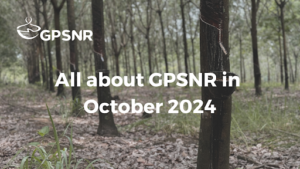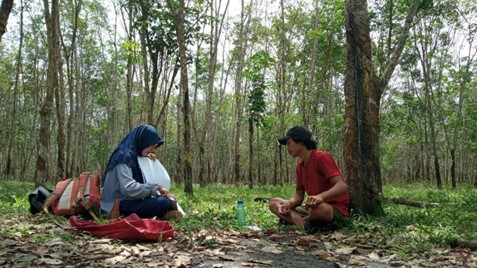
On Wednesday, 19 April 2023, the European Union approved the upcoming Deforestation-Free Regulation (EUDR) to prevent companies from placing products linked to deforestation onto the EU market. As part of the wider vision of the EU Green Deal, it will demand companies who import rubber or rubber-based products (e.g., tires) to verify that their supply chain is deforestation-free. It’s a push towards an era of environmental accountability, yet it also sparks debates about the path forward for the rubber industry.
The EUDR requires companies to have traceability to the farm level, including geo-location data and proof of land legality. According to the regulation, every plot below 4 hectares requires at least a GPS point coordinate, while plots above 4 hectares must have a polygon.
Fulfilling these traceability requirements is no small feat. There is concern from the industry that smallholder farmers may be unintentionally excluded from global sustainable supply chains. Ensuring smallholder farmer inclusion requires a holistic sustainability approach. There is no doubt that the rubber industry has begun moving towards sustainable rubber sourcing through combined industry efforts like the Global Platform for Sustainable Natural Rubber (GPSNR). However, the reality is that most imported rubber to the EU currently does not meet the regulatory requirements as the industry lacks traceability to the farm level. As 85% of the global natural rubber supply is supplied by approximately 6 million smallholder farmers, the implications of this regulation could be far-reaching and severe, particularly for these smallholder farmers.
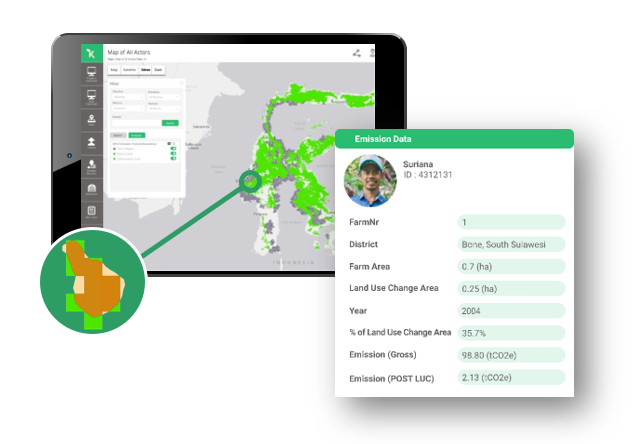
However, there is a lot of hope.
Firstly, even though it might seem challenging, traceability to the farm level is doable – even for the rubber industry. This has been demonstrated in a GPSNR-funded farmer training and coaching project primarily focused on supporting smallholders to apply Good Agriculture Practices (GAP). Koltiva, the company I am working for and who was selected to be the implementing partner for this project, has mapped more than 4,000 farmers and their farms to help them to prepare for the EUDR in less than a year.
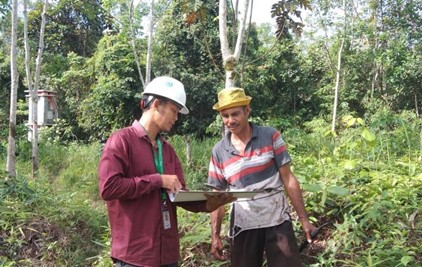
Secondly, we believe that traceability to the farm is scalable. In our work with clients in 51 countries, we were able to map almost 1 million smallholder farmers through our KoltiTrace platform. Platforms such as KoltiTrace allow companies to map and verify their supply chain, including transaction traceability from Seed to Tire and deforestation-free analysis.
Finally, EUDR could have a long-term positive impact on smallholder farmers. Currently, many rubber farmers do not have proper land titles. Due to the EUDR geolocation requirements, many smallholders will, for the first time, have access to a map of their own plantation, allowing them to legalize their land.
And it doesn’t stop there. Smallholders have largely been invisible in global supply chains. Traditional development programs have tried to engage them, but they have not reached the expected results. Many smallholders still have no access to knowledge, no access to capital, and soon will also be excluded from the carbon economy.
I believe that it’s possible to bridge these gaps. Traceability to farm level and digitalizing the first mile of agricultural value chains can lay the foundation for holistic sustainability interventions. Enabled by technology and data, the sector can equip farmers with critical knowledge, improve their access to finance, actively support farmers to apply low-carbon practices and enable them to reap the benefits of the growing carbon economy.
While traceability cannot be achieved overnight, the rubber industry is in a unique position. At GPSNR, the major industry players are sitting at one table. Through combined efforts and data-sharing agreements of shared supplier data, the rubber industry can become a leading example of how to meet the EUDR.
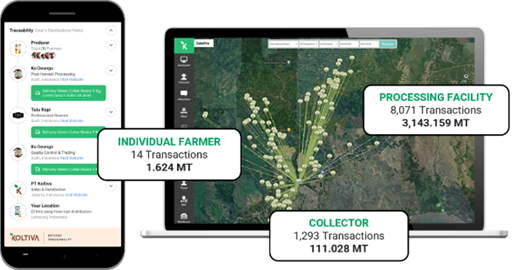
About the Author:
Luca Fischer is Koltiva’s Program Manager, leading Koltiva’s boots-on-the-ground implementation projects in the rubber sector globally. He bridges the gap between the client, product, and field teams.
Luca has over five years of work experience in sustainable sourcing, smallholder livelihood, and climate-smart agriculture development. He graduated with an M.Sc. in Sustainable Resource Management from the Technical University of Munich, Germany.
About Koltiva (click here for more information)
Established in 2013, Koltiva is a leading agritech company for enterprises to make their global supply chains traceable, inclusive, and climate-smart. Backed by Koltiva’s human-centered technology with boots-on-the-ground professional service, Koltiva supports some of the largest multinational companies by digitizing and verifying global supply chains, focusing on enhancing traceability, inclusiveness, and sustainability. Koltiva combines triple-tech (AgriTech, FinTech, and ClimaTech) to improve producers’ outcomes and profitability while building more sustainable supply chains.



